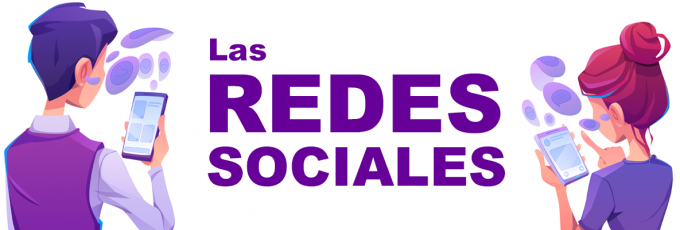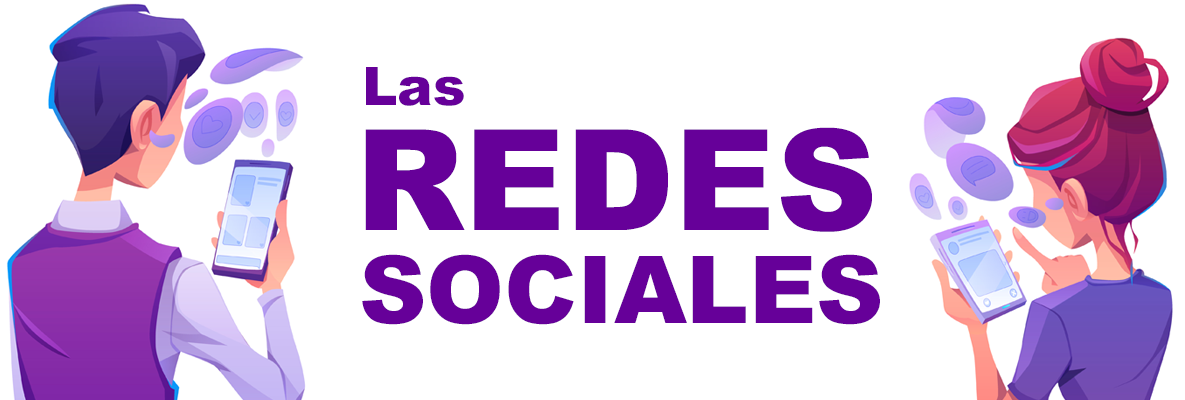

Social media is the everyday way to use the Internet in the 21st century. They are websites and applications for mobile devices, such as Facebook, Instagram, Tik Tok or Twitter, that allow us to connect with family, friends, clients or people who share common interests.
Social media is common around the world, especially among young people, but not everyone understands exactly what it means. This blog is dedicated to providing information about Social Networks and the Internet, explaining terms, solving doubts, tips, advice and much more.
Facebook Blog
Instagram Blog
Twitter (X) Blog
LinkedIn Blog
WhatsApp Blog
Tik Tok Blog
Youtube Blog
Community Manager Blog
ChatGPT Blog
Pinterest Blog
SnapChat Blog
Internet Blog
Gamer Blog
Digital Marketing Blog
Selfie Blog
What is Social Media?
Social Networks are platforms and systems designed with a social structure, to maintain communication between users who have common interests.
When you join a social network, you can meet other people and add friends or contacts to them. As you use the network more, you can add more contacts or discover people you know or share your same interests and add them as well. Other people can find you and connect with you.
The more you interact with a social networking site, the more your network of friends and interests will grow. It’s similar to networking in real life, for example, at a business conference. The more you interact with other people and discover those who have common interests, the wider your circle will be.
Social networks facilitate the creation of communities or groups of people who have the same interest or share things in common. We recommend you see: History of Social Networks
What types of social networks exist?
Social networks can be classified into 2 types: vertical (specialized), or horizontal (general).
Vertical Social Networks
Vertical social networks are those that allow you to create communities of people who relate around a common interest, such as photography, videos, sports, fishing or any topic of specific interest. Examples: Flicker, Youtube, TikTok, Vimeo, Badoo, etc. For example;
- Youtube, is a Social Network specialized in Video Blog.
- Tik Tok, is a social network specialized in Short and entertaining videos.
- LinkedIn is a Social Network Specialized in Professional Contacts and Recruitment of job opportunities.
Horizontal Social Networks
Horizontal social networks are aimed at the general public and do not have a defined theme. In this way they achieve a greater volume of users and expand the interactions between users. Example: Facebook, Twitter, Instagram, Whatsapp, etc. These are the best known Social Networks.
Entering each of them you will find a more extensive description and all kinds of publications about that social network. You will have completely free access to a world of knowledge dedicated to their use and everything related to them.
To get an idea of the importance of social media in society, according to Emarketer, 90.4% of Millennials, 77.5% of Generation X, and 48.2% of Baby Boomers are active users of social networking sites.
What to study to manage Social Networks?
Social Media presents many job opportunities for those who can manage it for business purposes or community building around a specific topic. If you are passionate about social networks and you are interested in knowing from an academic point of view how to take advantage of them, pay attention because we are going to tell you everything.
The name used to identify people who manage Social Networks is: Community Manager. The Community Manager is the person who is trained to handle the appropriate tools that will allow you to carry out different communication strategies in Social Networks.
The Community Manager is a relatively new profession, because of this there is an official curriculum that says exactly what you should study to be a Community Manager. Most of the professionals who are dedicated to them have been trained in careers in social communication or digital marketing. The good news is that even without having a university degree it is possible to study and learn the necessary skills in educational institutions or companies specialized in the sector.
If you want to know where to study for Community Manager in your country click here.
What are Social Networks for?
Social Networks are a whole system that satisfies the need for communication between human beings. Their existence is closely linked to the technologies associated with each of them. Its main uses are:
- Entertainment.
- Keep us communicated and informed.
- Marketing and Advertising. (We recommend you read: How social networks influence business)
- Sale of products and services.
To understand a little better let’s see what are the advantages and disadvantages of social networks:
Advantages of Social Networks
Every Social Network has positive and negative aspects, but in general they share almost the same advantages between them.
They’re Free
Many mobile phone companies provide access to social networks for free without deducting from your balance. It is not even necessary to activate them, they come free on the new Smartphones. In addition, subscribing to the most popular is free, publishing in them and interacting does not require any type of payment, you can do it from your phone or your computer.
Some social networks have paid plans to acquire special features. But it is very likely that you will never need them.
Encourage interaction
They are useful to communicate, one of the biggest and most important benefits that they bring us is the opportunity to interact with friends and family.
Those of us who use the main social networks know that they also allow us to meet people from all over the world and in a super easy way. Facebook and Whatsapp, for example, have overtaken alternative online pages for meeting people and keeping up with the news.
We can access them at any time
Whether on our laptop or mobile we can access them at any time. Being able to share any type of content that we can think of from anywhere in the world at any time.
Disadvantages of Social Networks
Why are social networks considered bad? In reality it is not that they are bad, we are the users who with our excessive or inappropriate use, that we make them dangerous. The smartest ones use them to get some benefit or benefit. Unfortunately, most users only use them to chat, find friends, partner and even play.
“Only those who control their impulses on social networks are able to prevent their addiction.”
How do Social Networks affect society?
Although social networks give society endless opportunities to learn, train and even work, it also has side effects, especially when people use them properly.
For example, with social networks we can reach many people through campaigns, to encourage, persuade or sell an idea or product. Point in favor for social networks!
However, if we create a campaign to harm or sink a person, aggressions are generated, misunderstandings and many people end up harmed. Point against for social networks!
Can Social Networks be used without risk?
Of course, as long as we are cautious about the use of social networks, we can reduce their risks, not root them completely, because this would only be achieved by stopping using them, however, the reduction of disadvantages and negative aspects, can be reduced if we act intelligently
Taking care of our private data
It is not necessary that you register absolutely everything you do on social networks, nothing happens if you put a false birthday or do not want to add your phone number and if you do not put your address they will not close your account, it is about preventing us as much as we can, and the best way to do it is not to show our personal information.